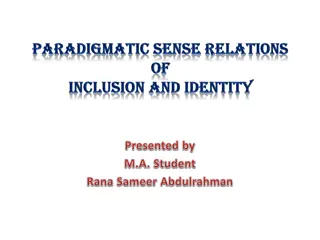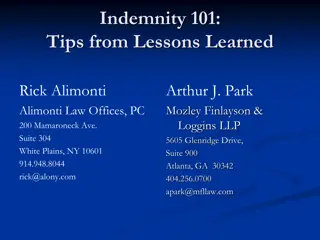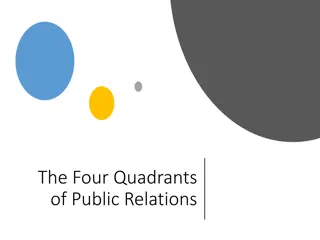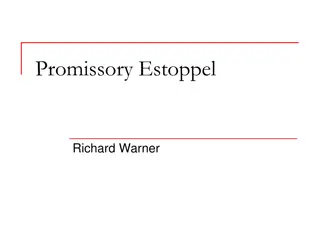Understanding Company Relations and Contractual Capacity
In this detailed text, various aspects of a company's relations with outsiders and its capacity to enter into contracts are explored. The discussion includes the legal concept of a company as a separate legal entity, its ability to contract directly, the mind and will of the company, the role of directors in representing the company, and the impact of the company's constitution on its contractual capacity. Key cases and principles such as the Doctrine of Ultra Vires and the Rule in Turquand's Case are also highlighted.
Download Presentation

Please find below an Image/Link to download the presentation.
The content on the website is provided AS IS for your information and personal use only. It may not be sold, licensed, or shared on other websites without obtaining consent from the author. Download presentation by click this link. If you encounter any issues during the download, it is possible that the publisher has removed the file from their server.
E N D
Presentation Transcript
COMPANY'S RELATIONS WITH OUTSIDER: COMPANY'S RELATIONS WITH OUTSIDER: CAPACITY TO CONTRACT CAPACITY TO CONTRACT READING: LIPTON, HERZBERG & WELSH CHAPTER 5. A Co is a separate legal entity and on registration on attains certain powers - s124 and is able to: 1. contract directly, either with the use of the Common seal or by appropriate persons signing the contractual documents; 2. where persons within the Co are given appropriate authority to enter into contracts on behalf of the Co.
MIND AND WILL OF THE COMPANY Organic Theory H.L.Bolton (Engineering) Co Ltd v T.J.Graham & Sons Ltd [1957] 1 QB 159 Lord Denning: A company may in many ways be likened to a human being. It has a brain and nerve center which controls what it does. It also has hands which hold the tools and act in accordance with directions from the center Directors and managers who represent the directing mind and will of the company, and control what it does. Lennard s Carrying Co Ltd v Asiatic Petroleum Co Ltd [1951] AC 705Viscount Haldane LC: A corporation is an abstraction. It has no mind of its own its active and directing will must consequently be sought in the person of somebody who for some purposes may be called an agent, but who is really the directing mind & will of the corporation, the very ego and center of the personality of the corporation
WHO IS DIRECTING MIND & WILL OF COMPANY? Meridian Global Funds Management Asia Ltd v Securities Commission [1995] 13 ACLC 3245 Tesco Supermarkets v Natrass [1972] AC 153 Donato v Legion Cabs (Trading) Co-operative Soc Ltd[1966] 85 WN (Pt1) (NSW) 242 Federal Com of Taxation v Whitford's Beach Pty Ltd [1982] 12 ATR 692 Brambles Holdings v Carey [1976] 2 ACLR 176 Re Chisum Services Pty Ltd [1982] 1 ACLC 292 Directors powers of management s198A
CO CONSTITUTION AND IT AFFECT OF COS CONTRACTUAL CAPACITY Doctrine of Ultra Vires: Beyond Power now abolished. Ashbury Railway Carriage & Iron Co v Richie [1875] LR 7 HL 653 Section 125 Section 125: If a company has a constitution, it may contain an express restriction on, or prohibition of, the company s exercise of any of its powers. The exercise of power by the company is not invalid merely because it is contrary to any express restriction or prohibition in the company s constitution. Constructive Notice and the Indoor Management Rule and its abolition: Section 130 A person is not taken to have information about a company because information is available to the public from ASIC. Rule in Turquands Case: Royal British Bank v Turquand [1865] 6 E&B 327
CO CONSTITUTION AND IT AFFECT OF CO S CONTRACTUAL CAPACITY Rule in Turquands Case: Royal British Bank v Turquand [1865] 6 E&B 327: Co constitution allowed Co to borrow money as authorised by a resolution at a general meeting. Co borrowed from bank loan signed by two directors and used Co seal but no resolution approving loan was passed. Bank advanced funds and the Co refused to repay arguing loan taken by Co was not done in accordance with constitution Bank had constructive notice of the constitution: Held: indoor management rule, Co entitled to assume constitution was complied with. Contracts beyond Co s constitution are still valid under s125; though directors liability seems to be removed under section. However, Ford states that failure comply with Co s object or constitution may give rise to actions against directors under s232- 235, s180-183, s140
EXCEPTIONS TO THE INDOOR MANAGEMENT RULE Cannot rely on indoor management Rule in Turquand s case if: actual notice whether 3rd party was put on notice or inquiry - Where outsider failed to make inquires that would usually be made by someone in their position? Would a reasonable person in the outsiders position have been put on inquiry and investigated?
NORTHSIDE DEVELOPMENTS PTY LTD V REGISTRAR GENERAL [1990] 8 ACLC 611 S director of S director of Northside Barclays loan to coy controlled by S Barclays loan to coy controlled by S Northside Northside guaranteed the loan secured by mortgage over land, its major guaranteed the loan secured by mortgage over land, its major asset asset Under seal, signed by S as director and son as secretary Under seal, signed by S as director and son as secretary In fact son had not been appointed as secretary In fact son had not been appointed as secretary Doctrine of constructive notice Doctrine of constructive notice Indoor management rule Indoor management rule Exception: circumstances require inquiry Exception: circumstances require inquiry No benefit for No benefit for Northside Northside, outside usual business , outside usual business Northside a fine balance between competing interests. On the one hand, the rule has a fine balance between competing interests. On the one hand, the rule has been developed to protect and promote business convenience which would be been developed to protect and promote business convenience which would be at hazard if persons dealing with companies were under the necessity of at hazard if persons dealing with companies were under the necessity of investigating their internal proceedings in order to satisfy themselves about investigating their internal proceedings in order to satisfy themselves about the actual authority of officers and the validity of instruments. On the other the actual authority of officers and the validity of instruments. On the other hand, hand, an over an over- -extensive application of the rule may facilitate the commission extensive application of the rule may facilitate the commission of fraud and unjustly favour those who deal with companies at the expense of of fraud and unjustly favour those who deal with companies at the expense of innocent creditors and shareholders who are victims of unscrupulous persons innocent creditors and shareholders who are victims of unscrupulous persons acting or purporting to act on behalf of companies acting or purporting to act on behalf of companies . Per Mason CJ . Per Mason CJ
USE OF COMMON SEAL Section 127: The Company Common Seal/Use when making Section 127: The Company Common Seal/Use when making Contracts Contracts: -s123 Co may have common seal - s127 Execution of documents by Co itself, i.e., without Co seal and with seal.
COMPANY'S ABILITY TO MAKE COMPANY'S ABILITY TO MAKE CONTRACTS THROUGH AGENTS: S126 CONTRACTS THROUGH AGENTS: S126 Sect 126 a Co s power to make, vary, ratify or Sect 126 a Co s power to make, vary, ratify or discharge a contract may be exercised by an discharge a contract may be exercised by an individual acting with the Co s express or implied individual acting with the Co s express or implied authority and on behalf of Co. authority and on behalf of Co. The The 3 elements of agency: Principal Agent Third party
TYPES OF AGENCY OR AUTHORITY Actual Authority Actual Authority: Actual authority arises where the principal has given consent to the agent to act for the principal (the Co) Hely-Hutchinson v Brayhead Ltd [1968] 1 QB 549 NAB v Sparrow Green P/L [1997] 17 ACLR 1566 Brick & Pipe Industries v Occidental Life Nominees Pty Ltd [1992] 10 ACLR 253 Equiticorp Finance Ltd v BNZ [1993] 11 ACLC 952
TYPES OF AGENCY OR AUTHORITY Apparent or Ostensible Authority Apparent or Ostensible Authority: Also includes terms such as agency by holding out or agency by estoppel . Apparent or ostensible authority creates the agency relationship because of the appearance of authority conferred on the agent by the principle. Freeman & Lockyer v Buckhurst Park Properties (Mangal) Ltd [1964] 2 QB 480 Lord Diplock s tests for ostensible authority: 1. there must be a representation that the agent had authority 2. the representation must be made by someone with actual authority 3. the 3rd party must be induced to enter into the contract on the faith of the representation 4. Co must have power under memo & articles to make contract. This point no longer really relevant.
CASES ON APPARENT OR OSTENSIBLE CASES ON APPARENT OR OSTENSIBLE AUTHORITY AUTHORITY Crabtree-Vickers Pty Ltd v Australian Direct Mail Advertising & Addressing Co Pty Ltd [1976] 50 ALJR 203 Re Madi Pty Ltd [1987] 5 ACLR Northside Developments Pty Ltd v Registrar General [1990] 8 ACLR 611 Brick & Pipe Industries v Occidential Life Nominees Pty Ltd [1992] 10 ACLR 253 Bank of New Zealand v Fibrei Pty Ltd [1992] 10 ACLR 557
ASSUMPTIONS THAT A PERSON CAN MAKE ASSUMPTIONS THAT A PERSON CAN MAKE WHEN DEALING WITH A COMPANY UNDER WHEN DEALING WITH A COMPANY UNDER S128 AND 129: S128 AND 129: S S128 128( (1 1)( )(2 2) ) entitlement entitlement to to make make assumptions assumptions s s129 129 ( (1 1) ) that constitution and replaceable rules have been complied with. See Royal British Bank v Turquand [1865] Oris Fund Management Australia Bank Ltd [2003] VSC 315 Ltd v National s s129 129( (2 2) ) Director or secretary named in ASIC doc s are duly appointed and have customary authority. See ANZ Banking Group ltd v Aust Glass & Mirror [1991] 9 ACLC 702
ANZ V AUSTRALIAN GLASS & MIRROS Co held held out 2 people as its director and secretary because lodged docs name the 2 persons as directors and they had previously signed docs as if they were directors
ASSUMPTIONS THAT A PERSON CAN MAKE ASSUMPTIONS THAT A PERSON CAN MAKE WHEN DEALING WITH A COMPANY UNDER WHEN DEALING WITH A COMPANY UNDER S128 AND 129: S128 AND 129: s s129 129 ( (3 3) ) Officer or Agent are duly appointed and have customary authority: See Freeman & Lockyer v Buckhurst Park Properties (Mangal) Ltd [1964] 2 QB 480; Re Madi Pty Ltd [1987] 5 ACLR s s129 129( (4 4) ) performance of duties: Richard Brady Franks Ltd v Price [1937] Officers and agents proper Now also see Pico Holdings Inc v Wave Vista Pty Ltd [2005] HCA 13
FREEMAN & LOCKYER -V- BUCKHURST PARK PROPERTIES The defendant company allowed one of its directors to act as the Managing Director and to give instructions to the Plaintiff to do work on its behalf. Held: The fact that he had never been formally appointed as Managing Director was of no consequence. The other directors knew the facts, the Company had effectively held out that individual as having the powers of the Managing Director, and the fact that he may have gone outside his actual authority did not affect the fact that he had apparent (or ostensible) authority to do what he did, and the Company was bound.
RICHARD BRADY FRANKS LTD V PRICE [1937] Held : a company cannot avoid a contract entered on its behalf by other agent who have breached his fiduciary duty where the third party was acting in a good faith without notice of the breach of duty
ASSUMPTIONS THAT A PERSON CAN MAKE ASSUMPTIONS THAT A PERSON CAN MAKE WHEN DEALING WITH A COMPANY UNDER WHEN DEALING WITH A COMPANY UNDER S128 AND 129: S128 AND 129: 5. s129(5) s129(5) document duly executed without seal. In Brick and Pipe Industries Ltd v Occidental Life Nominees Pty Ltd (1992) 10 ACLC 253, a director had implied authority to act as the company because he held a controlling shareholding and no attempt was made to interfere with this assertion of control. Also see recent case of: Vero Insurance v Kassem [2010] NSWSC 838
ASSUMPTIONS THAT A PERSON CAN MAKE WHEN DEALING WITH A COMPANY UNDER S128 AND 129: Questions of having formal authority or substantial authority to use seal. s129(6) document duly executed with seal 7. s129(7) officer or agent warranting genuineness of document. See Ruben v Great Fingall Consolidated Ltd [1906] AC 439
RUBEN V GREAT FINGALL CONSOLIDATED LTD The company secretary, to pursue a fraudulent objective of his own, presented to innocent lenders a share certificate appearing to be that of the company and appearing to be signed by two directors as well as by the secretary. However, the seal had been affixed by the secretary fraudulently and the secretary had forged the two signatures of the directors. Held : The forged docs did not bind the co. (forged docs being a nullity). Co. Sec only has authority to deliver valid certs
LIMITATIONS TO ASSUMPTIONS MADE LIMITATIONS TO ASSUMPTIONS MADE UNDER SECT 129 UNDER SECT 129 - - S128(4) S128(4) 1. You cannot rely on the assumptions under s129 where the person dealing with the Co knew the assumption is not correct, ie, where the third party has actual knowledge. - s128(4) or 2. Cannot rely on assumptions under s129 where the person suspected that the assumption was incorrect. - s128(4)
CASES ON S128(4) Northside Developments Pty Ltd v Registrar General [1990] 8 ACLR 611 Lyford v Media Portfolio Ltd [1989] 7 ACLR 271 BNZ v Fiberi P/L [1994] 12 ACLC 48 Brick & Pipe Industries Ltd v Occidental Life Nominees Pty Ltd [1992] 10 ACLR 253 Advance Bank Australia Ltd v Fleetwood Star Pty Ltd [1992] 10 ACLC 703 Storey v Advance Bank Australia Ltd [1993] 11 ACLC 629 Sunburst Properties Pty Ltd v Agwater Pty Ltd [2005] SASC 225 Gray J ..
ASSUMPTIONS WHEN FRAUD AND FORGERIES Section: 128(3)..the assumptions may be made even if an officer or agent of the co acts fraudulently, or forges a document, in connection with the dealing See Ruben v Great Fingall Consolidated [1906] AC 439 Storey v Advance Bank Australia Ltd [1993] 11 ACLC 629
NOTIONS OF USUAL AUTHORITY NOTIONS OF USUAL AUTHORITY: Common law and the Corporations at deal with usual authority of officers of Co. S198A states that Co is managed by or at direction of directors. Individual Director Statutory - s198B; s127(2) Common Law: Re Haycraft Gold Reduction & Mining Co [1900] 2 Ch 230 Director in a one person Company: S198E
NOTIONS OF USUAL AUTHORITY NOTIONS OF USUAL AUTHORITY: Managing Director: Statutory authority: s198C- conferral of powers on MD is normally very wide. s201J- Common Law: Biggerstaff v Rowatt's Wharf Ltd [1896] 2 Ch 93 Hely-Hutchinson v Brayhead Ltd Re Scottish Loan & Finance Co Ltd [1944] 44 SR NSW 461 Freeman & Lockyer v Buckhurst Park Properties (Mangal) Ltd [1964] 2 QB 480 Re Quintex Ltd [1990] 8 ACLR
NOTIONS OF USUAL AUTHORITY NOTIONS OF USUAL AUTHORITY: Chairman of Board: AWA v Daniels [1992] 7 ACSR 759 ASIC v Rich [2003] NSWSC 85
NOTIONS OF USUAL AUTHORITY NOTIONS OF USUAL AUTHORITY: Company Secretary: Statutory: S204A; Common Law: initially regarded as a clerk, but this was changed by Panorama Developments (Guildford) Ltd v Fidelis Furnishings Fabrics Ltd [1971] 2 QB 711 Club Flotilla (Pacific Palms Ltd) v Isherwood & others [1987] 5 ACLR s204E act of sec still valid even if their appointment is invalid and their act did not comply with Co constitution. S204F; Statutory responsibilities of Co secretary are set out in s188 and it includes some of the following: 1.s142 Co registered office 2.s145 registered office open to public 3.s305 lodgement of annual return with ASIC 4.s205B lodgement of changes of officers
COMPANY'S LIABILITY FOR CRIMINAL ACTS: For the purpose of the Corporations Act the common law criminal rules have been replaced by the Criminal Code contained in the Schedule of the Criminal Code Act 1995, which came into operation in Dec 2001. The Criminal Code applies to Co s the same as it applies to individuals. S12(2) provides that a Co can be guilty of offence including one punishable by imprisonment. Co s cannot be imprisoned but they can be fined. Sect 3.1(1) of the Criminal Code specifies that an offence can consist of two elements: Physical element: is conduct or the result of conduct; and a fault element consists of intention, knowledge, recklessness or negligence. Pharmaceutical Society v London & Provisional Supply Ass [1880] 5 AC 857 Tesco Supermarkets Ltd v Natrass [1972] AC 153
COMPANY'S LIABILITY FOR TORT: Citizens Life Assurance Co Ltd v Brown [1904] AC 423 Lennard's Carrying Co Ltd v Asiatic Petroleum Co Ltd [1915] AC 705
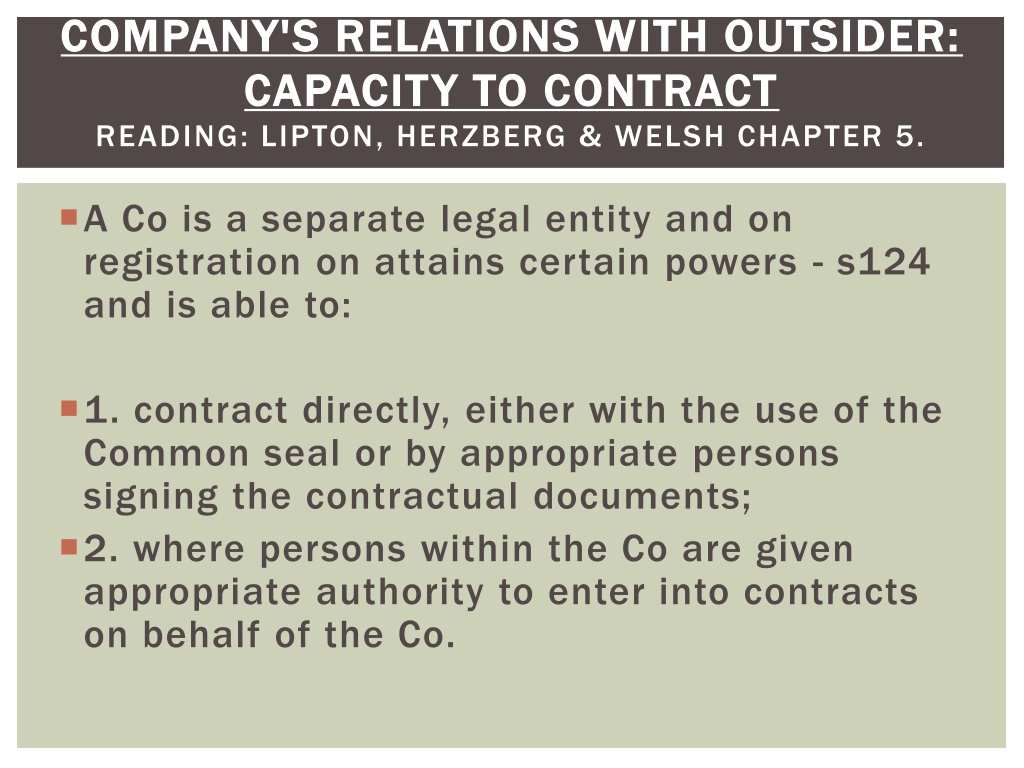

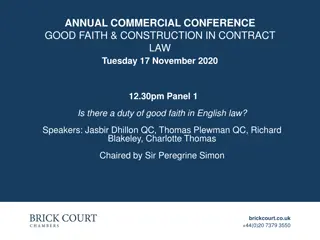
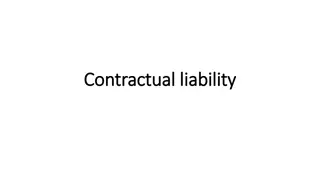

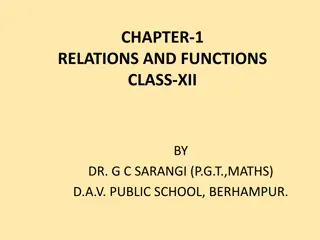

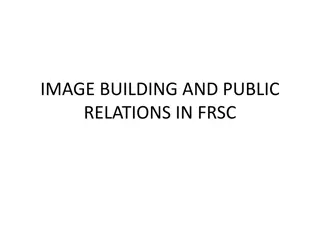
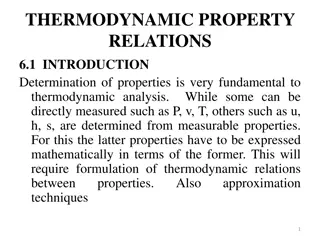
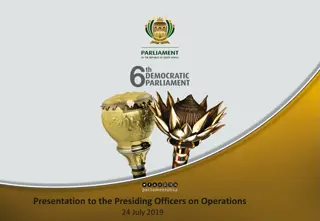

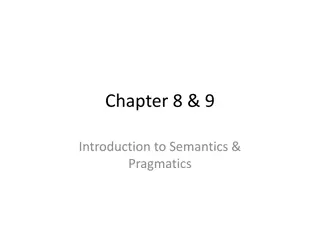
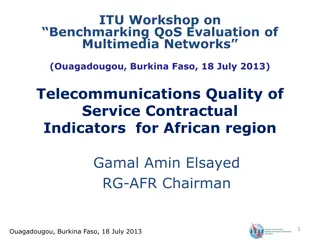
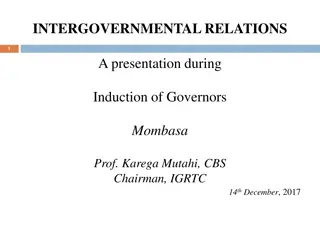




![Importance of Rock v. MWB [2018] UKSC 24 as Explained by Lord Sumption](/thumb/193348/importance-of-rock-v-mwb-2018-uksc-24-as-explained-by-lord-sumption.jpg)
